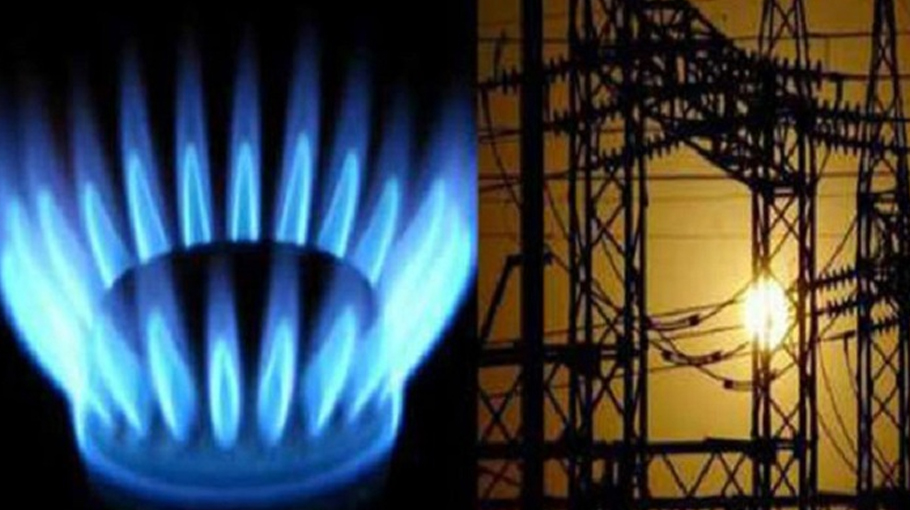Gas, power may cost more

Gas and electricity prices are likely to see an increase with the state-owned distribution companies beginning a process to hike gas prices -- a move experts are opposing arguing that it will put a new burden on the consumers whose earnings have shrunk due to the prolonged coronavirus pandemic.
Officials at Bangladesh Energy Regulatory Commission (BERC) said Pashchimanchal Gas Company Ltd and Jalalabad Gas Transmission and Distribution System Ltd have recently submitted two separate proposals to the commission seeking gas price hike.
Bangladesh Power Development Board (PDB) sources said they would be compelled to raise electricity tariffs if the prices of gas, one of the main primary sources of fuel for electricity generation, are increased.
The latest gas price hike move has come after the government enhanced diesel, kerosene and liquefied petroleum gas prices just two months ago.
The BERC, however, directed the gas distribution companies to submit their proposals again citing that the submission was not in accordance with rules.
The government increased the retail price of diesel and kerosene by Tk 15 a litre in November last year due to the rise in their prices in the international market, resulting in a hike in transport fares and commodity prices.
Oil prices have lately come down in the international market creating a scope for the state-owned Bangladesh Petroleum Corporation to make profits, but the authorities have not yet adjusted the domestic prices to that in the international market.
Opposing the gas price hike move, Professor M Shamsul Alam, Energy Adviser to Consumers Association of Bangladesh, said the Covid-19 pandemic has increased the living cost of most of the people on one hand and reduced income on the other.
“The recent hike in diesel and kerosene prices has led to inflation. In such a situation an increase in gas and electricity prices won’t be the right decision. Its economic consequences will be terrible,” he said while talking to Bangladesh Post.
In a coordination meeting on December 28, energy sector officials argued that gas prices need to be increased to meet the shortage of funds required to import liquefied natural gas (LNG).
The senior secretary to Energy and Mineral Resources Division told the meeting that a subsidy of Tk 70,000 crore is required for fertiliser, electricity and gas sector for the current fiscal year though the national budget has earmarked only Tk 12,500 crore for subsidy.
The Petrobangla chairmen said at the meeting that they sent a letter to the Finance Division on November 17 last seeking the disbursement of Tk 9,331 crore in subsidy for the purchase of LNG, but the division has disbursed only Tk 1,000 crore.
According to sources, the price of LNG per thousand cubic feet was only $10 before August last year in the international spot market but now it has climbed to $45.
The daily demand for gas in the country is 420 crore cubic feet daily while the supply is 300 crore cubic feet. Of this, the government imported 100 crore cubic feet of LNG, which has led to a massive rise in subsidy in the gas sector.
The government had to give subsidies amounting to Tk 2,125 crore when it went to buy three ships of LNG from the international spot market on an emergency basis in October last.
Terming the purchase of a huge quantity of LNG from the spot market ‘a wrong decision’, energy experts say a maximum of 10 per cent LNG should be purchased from the spot market and the rest 90 per cent should be procured through long-term agreements with multiple countries.
The import of LNG to address the gas crisis has been widely criticized since the beginning of the process. LNG regasification from Qatar and Oman was being done with two FSRUs (Floating Storage Regasification Units) at Maheshkhali. An FSRU is now closed due to a torn mooring point while Qatar and Oman have communicated that they would reduce the supply of LNG next year.
Experts say the country should give more priority to domestic oil and gas exploration to lessen the dependence on imported LNG, but the issue has long been neglected.
The 1995 Energy Policy laid emphasis on the drilling of four exploration wells a year – a suggestion successive government ignored.
Only 40 exploration wells have been drilled in the country since independence while Tripura has drilled 160 wells in its small area and discovered 11 gas fields. The first well was dug in Bangladesh land in 1910 and a total of 28 gas fields have been discovered by digging 95 wells since then.
The exploration of gas and oil from the maritime area that Bangladesh won from Myanmar and India through the verdicts of the UN Maritime Tribunal has also made no progress.
Bangladesh won 111,000 square kilometres from Myanmar and 19,467 square kilometres from India through the verdicts in 2012 and 2014 respectively.
The two neighbours have already begun exploration and extraction of natural gas and oil in their territorial waters.
Prof Shamsul Alam suggests rationing of gas and power supply in an effort to reduce subsidies.
“If the power supply is rationed, people will face load shedding for a few hours. It will be better than tariff hike because if the price of gas and power is increased, commodity prices will go up automatically. It will have a negative impact on the overall economy of the country,” he said.




